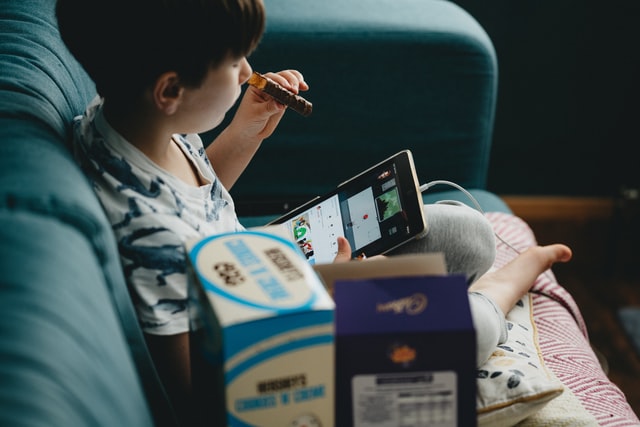As an elementary school principal, I am paying close attention to what families are doing during this time, from my own elementary school families, families I see on Facebook, and families around my neighborhood.
One theme is evident: the term virtual learning (or e-learning) means different things to different people.
And guess what? That’s okay!
I chuckle a little bit when I see families on Facebook who are “homeschooling” their kids due to COVID-19. Some have matching shirts with their last name to show their “new school.” And some have set up a strict schedule for their children to mimic the school day.
While order, routine, and expectations are certainly important during this time, let’s give ourselves and each other a break. No one expects you to homeschool your child. Most parents are not educators and should focus on what their children need the most right now—love, assurance, and fun.
Parents truly cannot replicate at home what is done each day at school, so don’t try. The bottom line is that e-learning was created to give students some continuity during their physical time away from school. This does not mean that new things must be taught; it simply means that students should work on some skills so they can pick up where they left off when they return to school. The Illinois State Board of Education has said that nothing during this time can be graded (although that may vary depending on states and counties), so do not stress about completing everything your child’s teacher has given you.
Most importantly, e-learning provides students the ability to check in with their teachers and other students. This is an important aspect that should be focused on, rather than focusing on your child completing everything that was assigned.
Putting my parent hat on, I will tell you that my eldest son is in first grade. I am trying to balance doing my own work with being home with my three children, ages seven and under. This is the situation many of us are in, and educators understand. My son’s school came out with lots of e-learning information. I personally find it important for him to practice writing, since his handwriting needs some work, so I’ve had him continue his spelling lists and write letters to family and friends.
There are other subjects that I don’t think he needs as much practice with (for example, he is above grade level in math), so I am not doing them. What I am doing are things I would not normally have the opportunity to do with him, and to me, that is what it takes to embrace and navigate this difficult time.
We have been doing a lot of puzzles and art projects, streaming fun things like Mo Willems “Lunch Doodles,” doing some online touring of national parks, taking some cool pictures around the house, and more. Trust me, your child’s teacher will applaud things like this. They wish they could have the time during the school day to do many of these things.
Here are a few other practical tips for virtual learning:
1. Remember that while routines are nice and help many of us stay on track, you have to know your own child. Your child might not need tight routines while at home and that is certainly okay.
2. Choose a few academic things a day, but do not drive yourself crazy! Fill the rest of the day with other activities that help your child grow and learn in different ways.
3. Build in some independent time each day. Children need this the most. Give them some time to relax and decompress on their own. During quiet time each day, my son has been working on Legos, puzzles, and cleaning his room.
4. For older students, monitor cell phone and social media usage. I cannot stress this enough! While we want our students to feel connected, many students are not developmentally ready to handle the pressures of group texting and apps that are not age appropriate. Monitor them all the time on cell phones and social media.
5. If the weather is nice, go outside and stay outside.
6. Give yourself a break. No one is judging your skills as a parent or a teacher. We are all in this together and taking it a day at a time.
7. Enjoy the gift of time with your children. Our lives are so hectic and busy during normal circumstances. Take some time to play a board game, watch a movie together, or just sit down and chat.
From one parent to another, stay healthy and stay sane.
All the best,
Tracey Ratner (mom of three and elementary school principal) and Adam Ratner (dad of three and mental health counselor)
~









Read 2 comments and reply